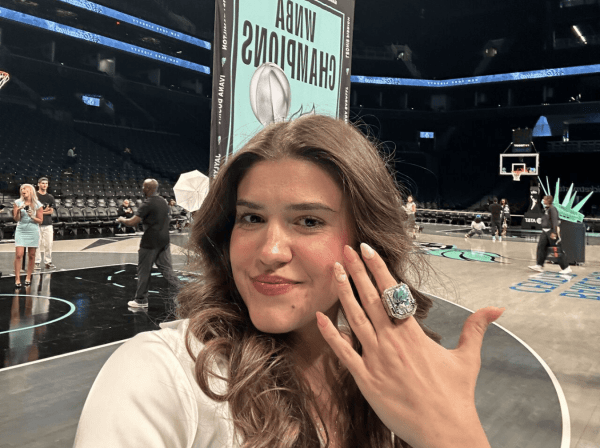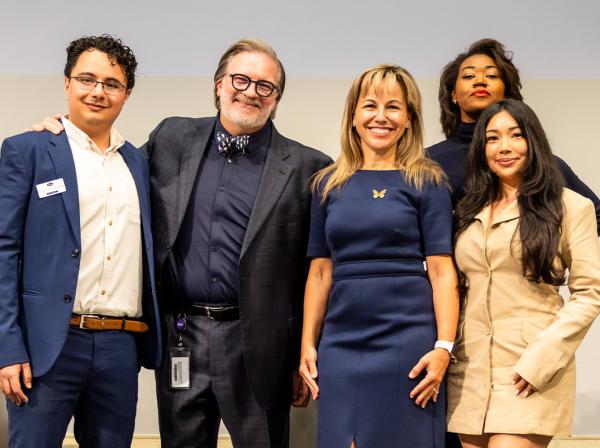Cultivating Mental Health
After working in the music industry, Ilyse Kennedy, MAC ’17 decided to switch to a career where she could focus more on helping people.
She became a therapist, in part because a therapist had made a difference in her own life when she was a child. Kennedy earned her Master of Arts in Counseling (MAC) at St. Edward’s and is now a licensed professional counselor (LPC) as well as a licensed marriage and family therapist (LMFT). She works with both adults and children in her South Austin practice, Moving Parts Psychotherapy. “Therapy is not a wellness factory,” she tells future clients. “It’s a personal experience tailored to you.”
Kennedy was looking for a personal experience for her graduate education. She chose to earn her MAC degree at St. Edward’s, inspired by the sense of community she felt among the students and professors. She took courses that inspired the direction of her future counseling practice. In Human Growth and Development, Kennedy learned about forms of attachment that people develop beginning in
infancy. The material revolutionized how she understood parenting — especially because she’d just had a baby. “The course influenced me so much that I wondered, why don’t all parents know about this?” she says. She now leads workshops about attachment as part of her specialization in counseling new moms.
Kennedy’s course on trauma also heavily informed her approach to counseling. She has completed additional training about the neurobiology of trauma, which equips her to work with clients who have survived upsetting experiences. Kennedy’s practicum – her last class in the MAC program, where she began to apply what she’d learned — was at Girl Scouts Beyond Bars, a program for girls whose mothers are incarcerated. She was able to use the concepts from the trauma class, which she was taking concurrently, to improve her work with her young clients.
“One reason I wanted to enter the counseling profession was that I wanted a career where I was always learning,” Kennedy says. “Classes like Trauma showed me that new research is constantly expanding our understanding of trauma, and you can never stop learning.”
Kennedy says she chose St. Edward’s partly because she knew she’d need support as she entered a challenging new career. She has stayed connected with classmates who have become colleagues — the MAC alumni often attend training together — and close friends. “Because these people understand the field I’m working in, they support me in a way that others can’t,” Kennedy says. “The community at St. Edward’s has lasted far beyond our time together in grad school.”
3 Lessons from the MAC Program
1. Build a support system.
Because of confidentiality rules, this isn’t a profession where you can come home at the end of the day and tell your partner everything that happened at work. Connect with colleagues who can be there for you because they understand the challenges of this field.
2. Be patient with yourself.
In practicum, you grasp for the first time that this is a profession where you’ll never know what to do in every single situation. Your supervisor will help you get started, and then you’ll learn as you go.
3. Seek ongoing support.
It’s important to work through your own “stuff” before you get out in the field. Self-care, including seeing your own therapist, is important for making sure your own issues don’t creep into your work with clients.


